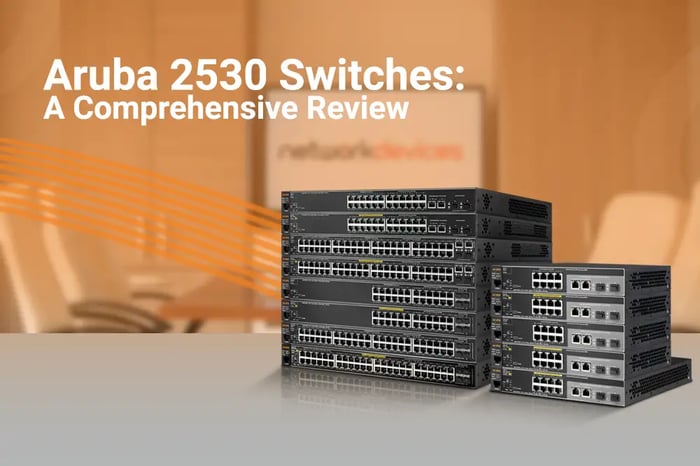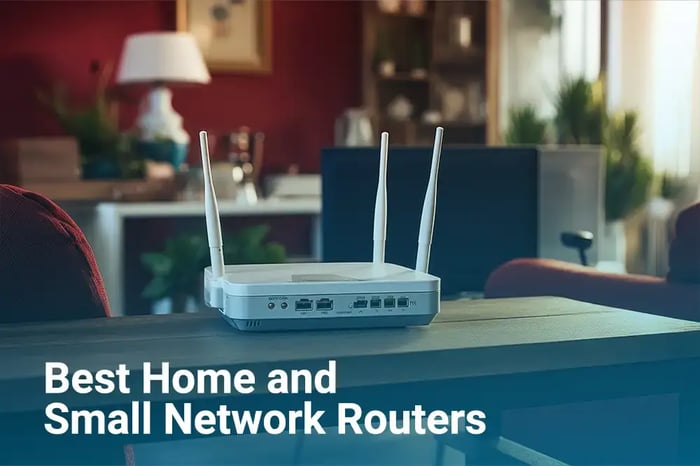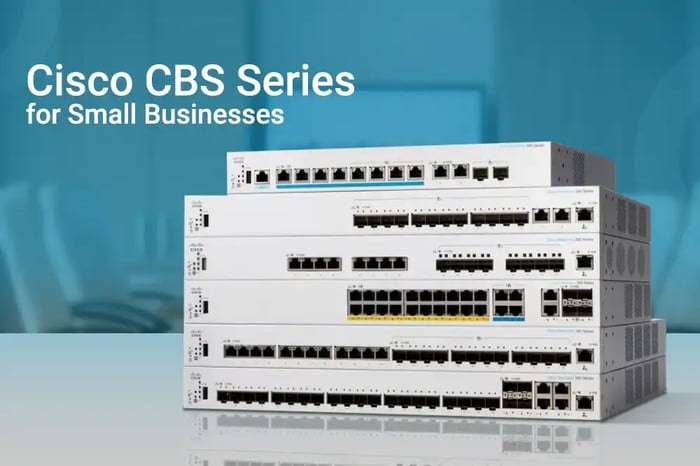You have no items in your shopping cart.

Aruba 2530 Switches: A Comprehensive Review
 Govind Jha
Product Review
|
Aruba
|
Switch
Govind Jha
Product Review
|
Aruba
|
Switch
03/09/2023 5:14am
7 minute read
This article will review Aruba 2530 switches, their features, and why they're an excellent choice for small and mid-sized businesses looking for high-performance, flexible, and secure solutions.
Network switching requires reliable, secure, and high-performance solutions. 2530 switches are one of the best options available in the market today. Secure your enterprise edge, core, and access layer connections with these switches.
The Aruba 2530 Switches are best suitable for small and mid-sized enterprises looking for flexibility, performance, and security features. It is a managed switch at the L2 access layer with excellent performance and a selection of gigabit and fast ethernet interfaces. These PoE-supported switches provide 370W power access to IP phones, cameras, and access points.
In this review, we will talk about various performance and security features of Aruba 2530. This article will help you decide why these switches can be your choice or the next upgrade option.
Analysis of Key Features
1. Network Interfaces
The Aruba 2530 switches come in three interface variants, namely 8, 24, and 48 ports. These are gigabit ethernets and can process 10MB, 100MB, and 1G network traffic. Additional SFP modules are supported to increase the network traffic speed to achieve higher bandwidth requirements.
Small businesses with on-premise systems and services can easily benefit from the 1G network traffic. This feature eliminates budgetary constraints and meets the performance requirements. The ethernet ports are physically and logically well-tested. They also suit various environments like in-house data centers and rack-mount applications. The interfaces can be easily connected to endpoints with an
2. RAM
Memory is an essential aspect of modern network switches. It helps in faster processing and maintaining packet buffers.

Whereas firewalls and routers require large memory to process traffic, L2 network switches only contain Mac address information. These switches work in a single broadcast domain, which does not need a large memory size. Therefore, these switches can process traffic without requiring a higher memory size.
The Aruba 2530 series offers 256 MB DDR3 memory for handling memory-related tasks. It can process network traffic for small and enterprise networks using Aruba switches. This amount of memory size is very decent, and no compromise in that.
3. VLAN
Virtual Local Area Networks (VLANs) are an excellent feature. They help scale the network infrastructure quickly and save the unnecessary cost and requirement of additional switches. Therefore, new network subnets can be provisioned without additional switches.
The Aruba 2530 supports IEEE 802.1Q. It can support a maximum of 512 VLANs and 4096 VLAN IDs. This feature allows for scaling, segregating, and securing different departments with unique network subnets belonging to different VLANs.
Rapid per-VLAN spanning-tree RPVST enables each VLAN to build its own STP, which improves network bandwidth and reduces the risk of bridge loops. This feature helps enterprise networks where multiple networks configured in a single switch can cause a network loop.

4. Mac Address
Mac address characterizes the physical identification or tagging of a physical device in a network topology. Mac addresses are used in the physical layer of the OSI model. They help network switches identify where traffic should be sent. The switches use the source and destination Mac addresses to forward the traffic.
Generally, small networks have around 60-100 hosts. These hosts include endpoints, mobile phones, access points, IP cameras, and other networking devices. All of these devices have Mac addresses.
The Aruba 2530 switches support 16000 MAC addresses. These MAC addresses provide network connectivity and access to endpoint devices. That number would be more than sufficient for a small or enterprise network.
5. Power Over Ethernet (PoE & PoE+)
PoE and PoE+ are essential features of the series. These features provide electric power and data over a single ethernet cable to devices, eliminating the burden of additional PoE switches or adapters and saving costs.

When you buy the PoE version of Aruba 2530 for your business, you can add as many PoE devices to the network without needing PoE adapters. This switch offers up to 370 watts of power with PoE+ enabled by default.
6. Switching Capacity & Throughput
Switching capacity and throughput are vital components in assessing data processing speed. They help calculate the resources required and forward the data from source to destination.

The Aruba 2530 offers 104 GBPS switching capacity and up to 77.3 Mpps throughput, enabling small enterprises to reach their data transmission rates and faster connectivity goals.
7. Security
The Aruba 2530 has all the essential security features required to protect the network on layer 2. The IEEE-compliant security feature assures businesses that these switches treat security and authentications seriously.

With Aruba 2530, configuring ACLs, port security, and Mac address-related protection is pretty simple. The DHCP server and dynamic ARP protection features help users and enterprises mitigate and prevent denial of service attacks.
8. High Availability
Gone are the days when businesses used to rely on a single instance of networking appliance that could fail anytime, making it a single point of failure. Today’s advanced applications systems need maximum uptime to process the data to offer maximum profits.
Businesses can aggregate multiple ethernet links or ports, creating link redundancy across the network topology. This feature will help prevent a single point of failure in the entire network infrastructure.
9. QoS
The QoS feature can be another deciding factor for businesses to opt for Aruba 2530 switches for their networks. The IEEE 802.1p is a global standard for traffic prioritization. It is loaded with port and VLAN-based traffic prioritization.
10. Zero-Touch Provisioning
The installation of the Aruba switching infrastructure is relatively simple with zero-touch deployment. The installation process is simplified using a DHCP-based process with Aruba AirWave. Support both cloud-based and on-premise Aruba central management for central management and visibility.

11. REST API Support
REST API supports integration with third-party applications and services for customization and enhancements. These features are not easily available in this price segment, so Aruba is the clear game changer.
12. Centralized and simple management
The Aruba 2530 switches can be controlled, managed, and monitored centrally using Aruba Central. Aruba Central:
-Is available as a cloud and on-premise solution
-Provides unified visibility and control management
-Makes it easy to onboard, secure, monitor, and manage Aruba switches

Features at a Glance
1. Reliable and secure Layer 2 managed switch and cost-efficient
2. Centralized and simple management via Aruba AirWave, Aruba Central, and Aruba ClearPass Policy Manager
3. Right size deployment with choice of 8, 24, and 48 port Gigabit and Fast Ethernet model
4. Up to 370W PoE+ to power IoT, APs, and cameras
5. REST API support
6. Simple deployment with Zero Touch Provisioning
7. Layer 4 prioritization enables priorities based on TCP/UDP port numbers
8. Flow control delivers reliable communication during full-duplex operation
9. Wired and wireless support
10. Layer 2 switching
11. Convergence and QoS
12. Resiliency & HA

Pros
· Ideal for small enterprise networks
· Supports IEEE standard networking features.
· Secure
· Easy deployment
· Cloud Management with Aruba Central
· PoE and PoE+
· Compact fanless models
· REST APIs
· Zero-touch deployment
· Centralized management and visibility
Cons
· Requires time to learn and operate.
· Fewer solution KBs
· Not suitable for data center networks
Conclusion
The Aruba 2530 switches are an excellent choice for enterprises looking to scale, secure or upgrade their networks. The advanced features with scalability, flexibility, simple deployment, and management using Aruba Central add value to the networks. The reasonable price makes it a top cost-effective switching solution.
If you want to start browsing our vast portfolio, CLICK HERE. If you have any questions or want to get a bulk order quote, CONTACT US.
Related Articles
Best Home and Small Network Routers
5 minute read
03/01/2023 9:15am
Cisco CBS Series for Small Businesses
6 minute read
02/08/2023 3:07am
Next Generation Firewalls (NGFWs): How Secure Are They?
6 minute read
04/13/2023 9:09am












